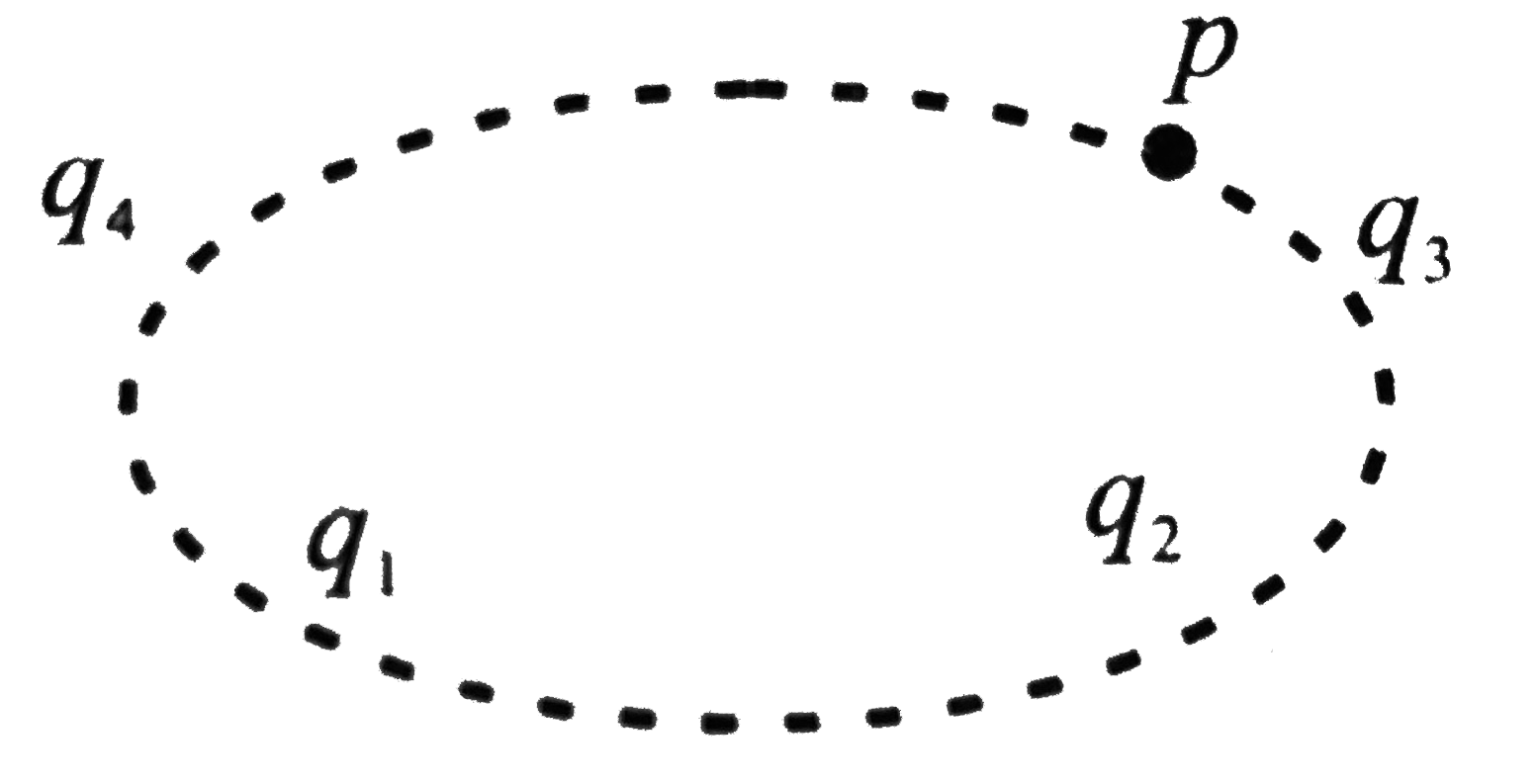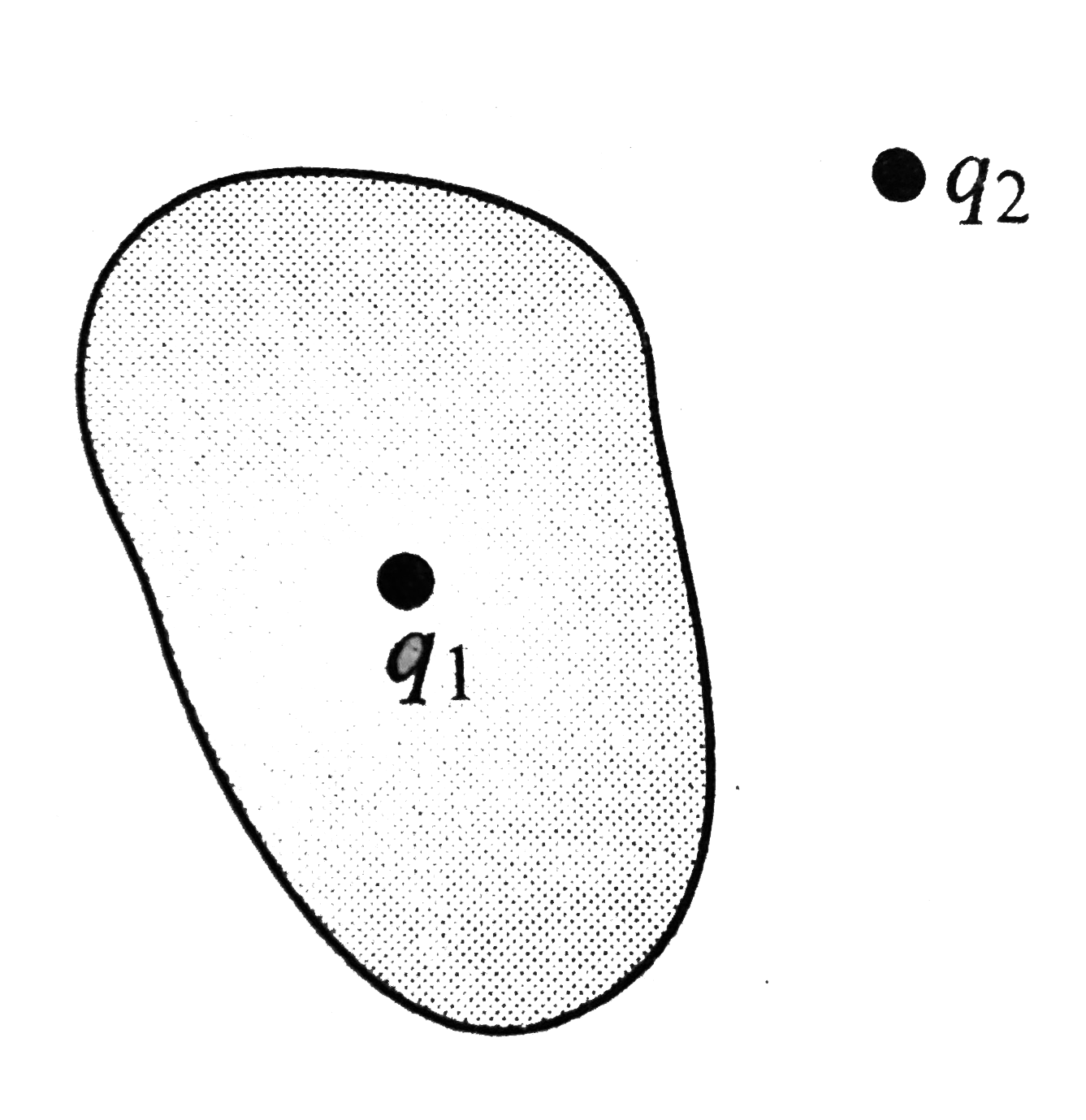Can Gauss's law in electrostatics tell us exactly where the charge is located within the Gaussian surface ?
No, Gauss's law cannot determine the position of charege. It tells us the magnitude of charge enclosed by the Gaussian surface.
Similar Questions
State Gauss' law in electrostatic.
View Solution(a) A conductor having cavity C is charged as shown in Fig. What is electricfied inside the cavity ? Does the result depend upon the shape and size of the cavity ?

(b) Can Gauss's law tell us exactly where teh charge is located inside the Gaussian surface ?View Solution
Knowledge Check
- Question 1 - Select One
Gauss's law of electrostatics would be invalid if
Athere were magnetic monopolesBthe speed of light was not a universal constantCthe inverse square law was not exactly trueDthe electrical charge was not quantized - Question 2 - Select One
Gauss's law and Coulomb's law , although expressed in different forms , are equivalent ways of describing the relation between charge and electric field in static conditions . Gauss's law is ε0ϕ=qencl,when q(encl) is the net charge inside an imaginary closed surface called Gaussian surface. The two equations hold only when the net charge is in vaccum or air .
A Gaussian surface encloses two of the four positively charged particles. The particles that contribute to the electric field at a point P on the surface are
 Aq1 and q2Bq2 and q3Cq4 and q3Dq1,q2,q3 and q4
Aq1 and q2Bq2 and q3Cq4 and q3Dq1,q2,q3 and q4 - Question 3 - Select One
When no charge is confined with in the Gauss's surface, it implies that -
AE = 0B→E and →ds are parallelC→E and →ds are mutually perpendicularD→E and →ds are inclined at some angle
Can charge lie on a Gaussian surface?
View SolutionWhich of the following statements is/are correct?
a. Electric field calculated by Gauss law is the field due to only those charges which are enclosed inside the Gaussian surface.
b. Gauss law is applicable only when there is a symmetrical distribution of charge.
c. Electric flux through a closed surface is equal to total flux due to all the charges enclosed within that surface only.View SolutionA charge Q is enclosed by a spherical Gaussian surface of radius R. If the radius of the sphere is double, how will the outward electric flux charge ? If a charge −Q is brought outside the Gaussian surface, will the electric flux reduce to zero ?
View SolutionConsider Gauss's law
∮→E⋅→ds=qε0
Then, for the situation shown in figure at the Gaussian surface
 View Solution
View SolutionA+q1 charge is at centre of an imaginary spherical Gaussion surface 'S', and −q1 charge is placed nearby this +q1 charge inside 'S'. A charge +q2 is located outside this Gaussian surface. Then electric field on Gaussian surface will be :
View Solution

